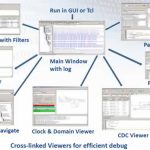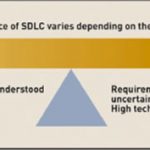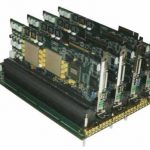Licensing IP can be a pain, especially when the vendor’s business model has front-loaded costs to get started. Without an easy way to evaluate IP, justifying a purchase may be tough. With more mid-volume starts coming for the IoT, wearables, automotive, and other application segments, it’s a growing concern. Flex… Read More
Creating a better embedded FPGA IP product
Our introduction to Flex Logix and its embedded FPGA core IP drew several comments, predominantly along the lines of a few things like this have been tried before. In this installment, we dive into the EFLX cores, the FPGA toolchain, the roadmap, and a powerful integration feature.… Read More
Solving the Next Big SoC Challenges with FPGA Prototyping
The health of the semiconductor industry revolves around the “start”. Chip design starts translate to wafer starts, and both support customer design wins and product shipments. Roadmaps develop for expanding product offerings, and capital expenditures flow in to add capacity enabling more chip designs and wafer starts. If… Read More
FPGA tools for more predictive needs in critical
“Find bugs earlier.” Every software developer has heard that mantra. In many ways, SoC and FPGA design has become very similar to software development – but in a few crucial ways, it is very different. Those differences raise a new question we should be asking about uncovering defects: earlier than when?… Read More
Aldec reprograms HES7 for AXI4 speed
FPGA-based prototyping firms are all grappling with the problem of higher speed connectivity between a development host and their hardware. Aldec is announcing their solution at DVCon 2016, turning to an AMBA AXI4 interface bridged into a host with PCIe x8.
Faster host interfaces deliver dual benefits in FPGA-based prototyping.… Read More
S2C opens up FPGA prototyping for PCIe fabrics
Reconfigurable computing began with FPGA cards dropped into expansion slots in workstations. FPGA-based prototyping vendors tended away from that model as interconnect speeds rose and cabling complexity between modules increased. Much faster PCIe interfacing and bigger FPGAs mean revisiting the concept.… Read More
Reconfigurable redefined with embedded FPGA core IP
On November 1, 1985, before anyone had heard the phrase field programmable gate array, Xilinx introduced what they called a “new class of ASIC” – the XC2064, with a whopping 1200 gates. Reconfigurable computing was born and thrived around the RAM-based FPGA, whose logic and input/output pins could be architected into a variety… Read More
Fastest SoC time-to-success: emulators, or FPGA-based prototypes?
Hardware emulators and FPGA-based prototyping systems are descendants of the same ancestor. The Quickturn Systems Rapid Prototype Machine (RPM) introduced in May 1988 brought an array of Xilinx XC3090 FPGAs to emulate designs with hundreds of thousands of gates. From there, hardware emulators and FPGA-based prototyping … Read More
Updated tool cuts through DO-254 V&V chaos
Audits. The mere mention of the word keeps project managers up at night and sends most designers running. However, in the case of FPGA designs seeking DO-254 compliance, the product doesn’t ship until the audit is complete – there is no avoiding it, or skating around it.… Read More






The Name Changes but the Vision Remains the Same – ESD Alliance Through the Years